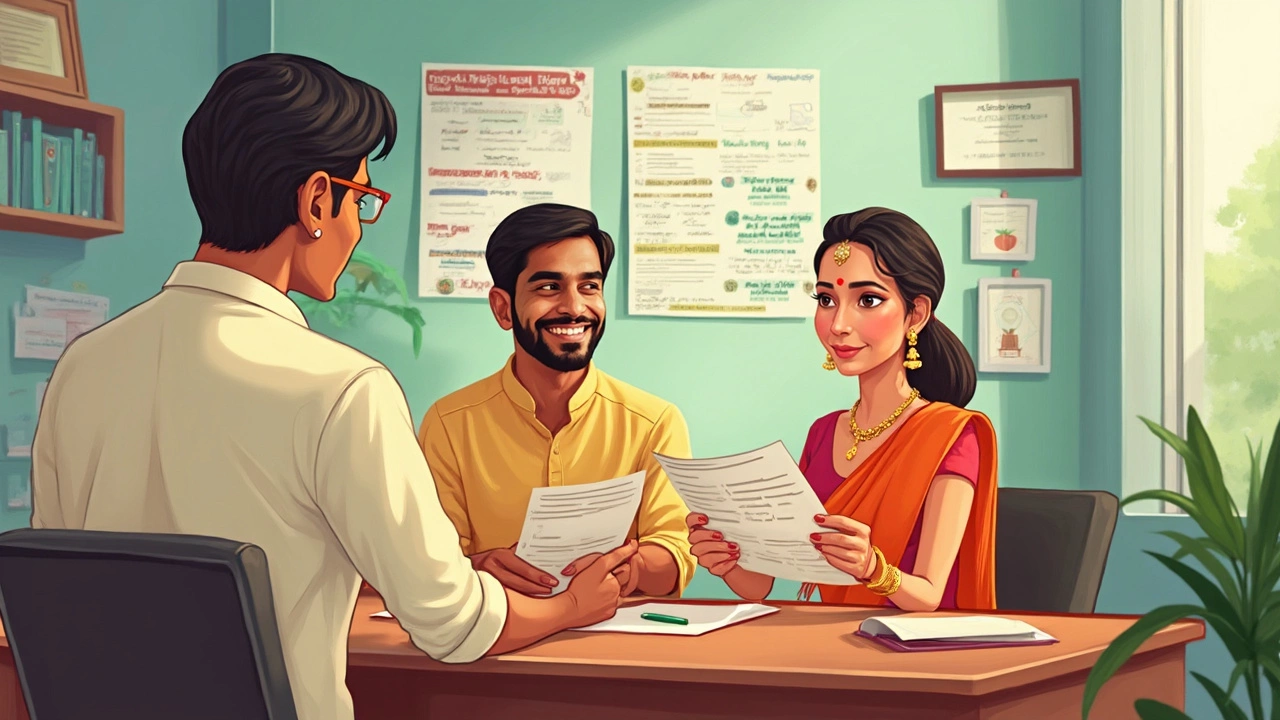Marriage Documents You Need for a Legal Indian Wedding
Ready to tie the knot? Before you plan the reception, make sure you have the right paperwork. Missing a form can delay your marriage registration and force you back to the office. Below is a clear, no‑fluff guide to the documents every couple in India should gather.
Core Documents You Must Submit
Most marriage registrations require the same five items. Ask for a certified copy of each and keep an extra set at home.
- Application Form – Usually called ‘Form 5’ or the local equivalent. Fill it out online or on paper, then sign in front of the Registrar.
- Proof of Age – A birth certificate, passport, or school leaving certificate that shows both parties are at least 18 years old.
- Address Proof – Any government‑issued document with your current address: Aadhaar card, utility bill, or voter ID.
- Affidavit of Intended Marriage – A simple sworn statement that you’re not already married and that the marriage is voluntary.
- Passport‑Size Photographs – Two recent photos of each partner, usually 2x2 inches.
Bring originals and self‑attested copies. The registrar will verify them and return the originals after stamping.
Special Situations & Extra Papers
If your case isn’t the standard “both citizens, same religion, same city,” you’ll need a few more documents.
- Divorce Decree or Death Certificate – If either partner was previously married, provide the legal proof of dissolution.
- Inter‑religious Marriage Certificate (Special Marriage Act) – Couples marrying under the Special Marriage Act must submit a notice of intended marriage and a declaration of intent.
- NRI Documents – NRIs need a passport, overseas address proof, and a No‑Objection Certificate (NOC) from the embassy, if required by the local office.
- Age Exception Form – If one partner is under 21 (for men) or 18 (for women), a court order or parental consent is mandatory.
Check with your local Sub‑Registrar’s office because some states have additional requirements, such as a caste certificate for Scheduled Castes.
Now that you know what to collect, here’s how to file them:
1. Schedule an appointment online or visit the office during working hours.
2. Submit the completed application form along with all originals and self‑attested copies.
3. Pay the registration fee (usually INR 500‑₹1,000, varies by state).
4. The registrar will verify, take your signatures, and issue a marriage certificate within 7‑15 days.
Common mistakes include using expired ID cards, forgetting the affidavit, or not having two witnesses (some offices still need them). Double‑check each item before you leave home.
Quick checklist:
- Application form filled and signed
- Age proof for both partners
- Address proof for both partners
- Affidavit of intended marriage
- Two passport‑size photos each
- Any extra papers for divorce, NRI status, or inter‑religious marriage
Having everything ready will save you time, money, and a lot of hassle. Congratulations – you’re one step closer to making it official!

Marriage Registration Cost in India: What You Need to Know
Curious about how much it costs to register a marriage in India? This article breaks down registration fees for different states, lays out the basic charges for Hindu and Special Marriages, and offers tips to avoid overpaying. You'll find out what to expect when it comes to paperwork and extra charges. Save yourself time and money—here’s all you need to know before heading for your marriage registration.